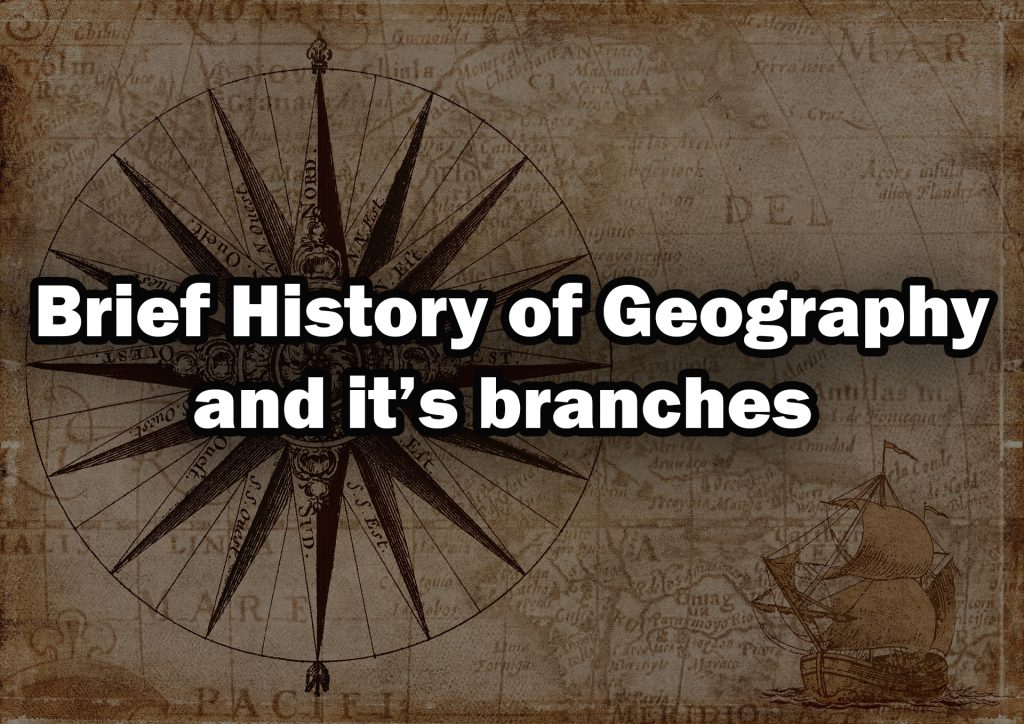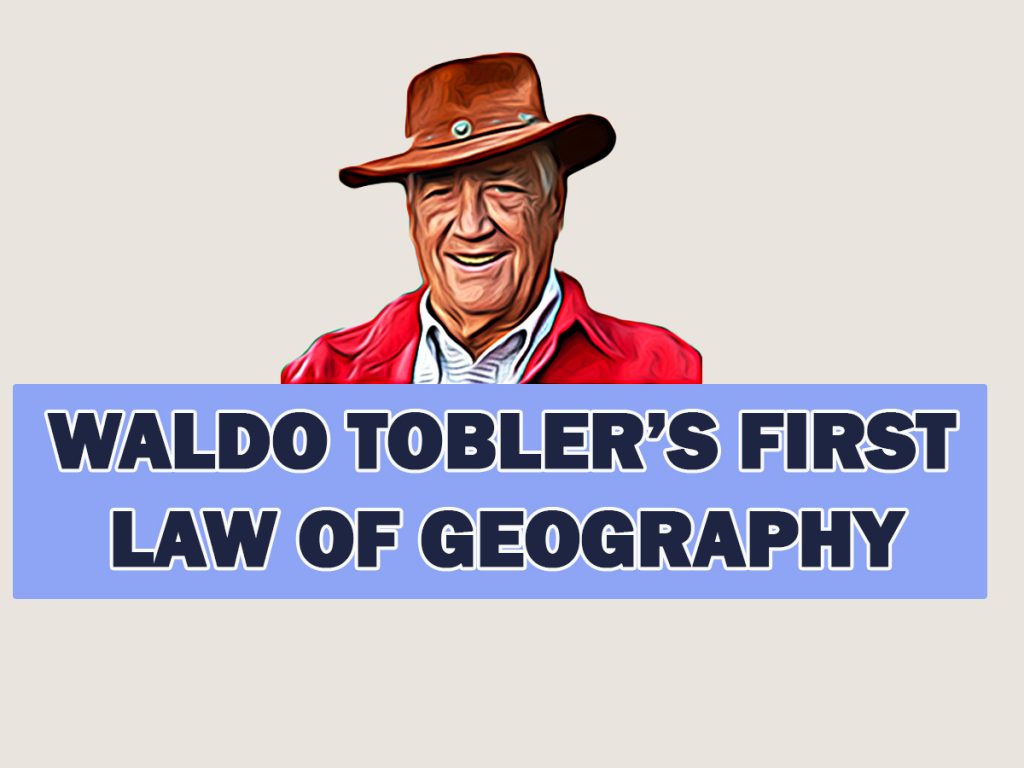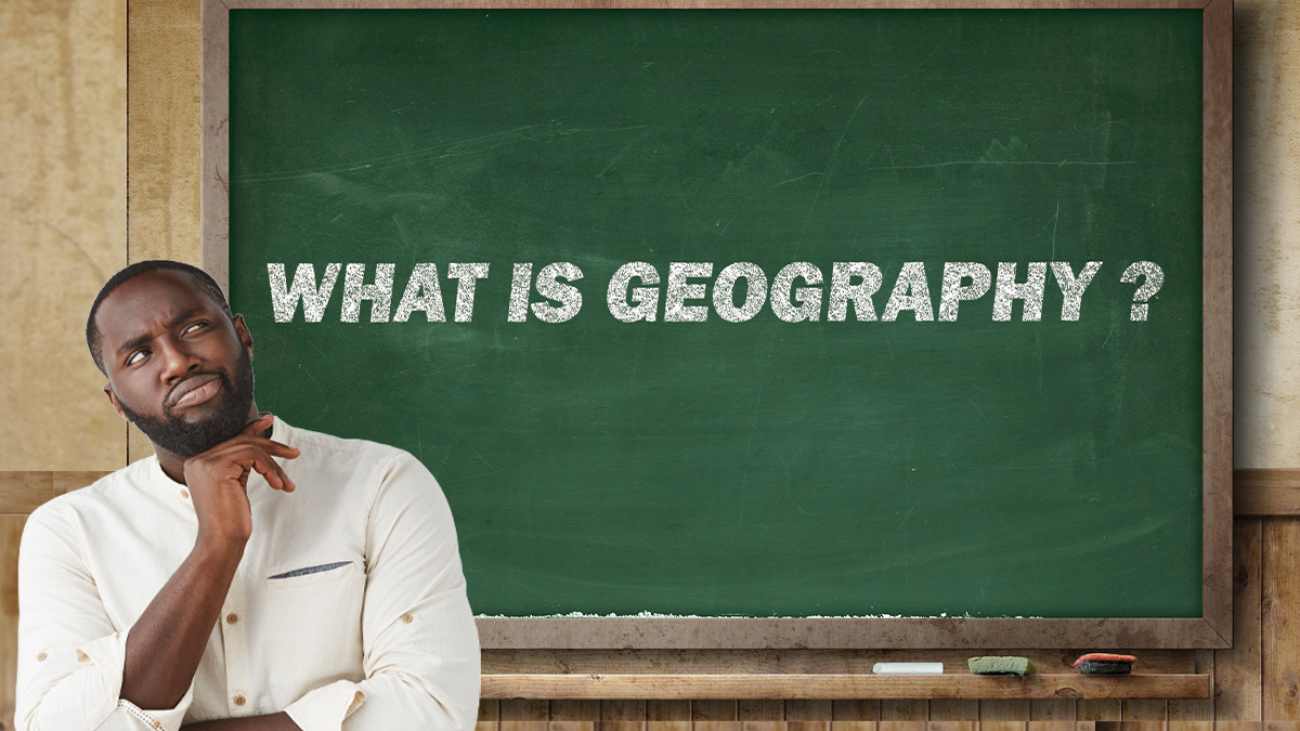What is Geography in simple words?
The word “Geography” was gotten from two Greek words which are: “Geo” which means earth and “Graph” which means to describe. So, putting those two greek words “Geo” and “Graph” together, Geography can simply be defined by a layman as the description of the earth.
The full definition of Geography
However, there’s more to Geography than a mere description of the earth. Hence, can be defined as the study of physical features, places, people, and their activities within the earth.
It also deals with the study of various people in different parts of the earth including their activities like mining, construction, agriculture, trading, fishing, etc, and how these activities affect the earth.

Scope of Geography
Geography is a social science course in the academic world that has to do with the study of man and his activities in the environment.
Therefore, Geography ideas are realistic, practical, and easy to understand because they are very relevant to our daily life experiences.
Geography is also related to many other disciplines such as Economics, Agricultural Science, Biology, Sociology, History, Government, Political Science, Environmental Science, and list goes on. Geography has one or two things in common with all these disciplines as mentioned above.

Brief History of Geography and its branches
Modern-day Geography originated from medieval Cosmography, a fascinating combination of astronomy, astrology, nautical science, earth core, natural history, and history, etc. Gradually as a result of the development of signs and scientific study in the 17th and 18th centuries, cosmography shed many of its facets which became sciences of their own right, examples of these facets were Astronomy, Geology, Meteorology, botany, zoology, etc. The remaining that was left became Geography which was a study focusing mainly on the motions of the earth, its measurements, the description of places, etc.
In the 19th century, Geography was typified by its “capes, coves, and items”, which was a methodology that was somewhat dull and sterile. The tumult of causes in scientific circles by Charles Darwin‘s idea of evolutionary development joined with the tremendous fund of knowledge being made available at man’s disposal as a result of the 19th-century exploration, travel, and opening up of new lands of the world which also contributed the rebirth of geographical study. During this period, Geographers became less concerned with making inquiries and explorations around the world, and began asking questions like “how?”, “why?”, as well as “where?”. This new approach gave rise to what came to be known as Causal Geography.
During the 20th century, geography evolved into an analytical and interpretative study. Though starting from the 19th century national censuses, trade statistics, and ethnographic studies gave a formal foundation to human geographic investigation, and by the end of the 19th century, geography became a very distinctive academic discipline in universities and other academic institutions across Europe and other parts of the world where European academic curriculum and schemes were followed. The rapid increase in the number of professional geographers and geography programs gave rise to a whole series of increasingly specialized disciplinary sub-division.
So, modern Geography can be defined as the exact and organized knowledge of the distribution and organization of phenomenon on the surface of the earth.

Types of Geography
Geography is classified into 3 main categories below;
- Physical Geography
- Human Geography
- Environmental Geography
1. Physical Geography: This has to deal with the study of man’s immediate natural environment and its physical features like water bodies, mountains, soil, atmosphere, earth motion, etc.
2. Human Geography: This is a branch of geography that has to do with the study of human behaviors, activities, populations, habitats, culture, laws, etc.
3. Environmental Geography: This is a branch of geography that has to do with the study of man’s relationship with his environment.

Tobler’s First Law of Geography
The first law of geography was formulated by Waldo R. Tobler in the year, 1970. According to Waldo Tobler, The first laws of geography state that everything on the earth’s surface is related to everything else, but near things are more closely related.
Examples of Tobler’s law of Geography
Take for example if you want to shave your hair and beard (For Men), and get your hair done (for ladies) you would always look for a salon that is next to you. This doesn’t mean that we are not going to interact with features that are far away from us, it means that we are most likely to always interact with things that are near to us.
Also, another example that can be used to explain the first law of geography is a long-distance relationship. Imagine being in a long-distance relationship, at first it might feel so good missing each other while engaging in chats and phone calls, but along the line, you will get tired of the relationship and start interacting with people that are near to you, meeting new friends and even fl!rt with someone more attractive than your partner or even catch feelings for him or her which makes your serious relationship break apart (though there are exceptions to this). this also example also explains the Distance Decay concept which is very vital to Tobler’s First Law of Geography.
What is Distance Decay?
Distance decay states that the interaction between two places, items, people, etc declines as the distance increases between them increases
4 Traditions of Geography
The following are the four traditions of geography;
- Spatial or locational Tradition
- Study area or Regional Tradition
- Man-land Tradition
- Earth Science Tradition
Criticism of the traditions of geography
Ever since Waldo Tobler formulated the first law of geography, there have been critics of this law, there are a lot of scholars that have disputed the entire concept of the first laws of geography one of these people who is known as Robinson, said that the traditions of geography formulated by Williams (1963) lacked the concept of time.
5 Importance of geography
There following are the major importance of geography;
- To study the physical environment around us
- To gain knowledge of the physical features in our immediate environment
- To study and understand the cultures of people all over the world.
- It helps in external and internal trade.
- It helps us in studying our immediate social environment.





